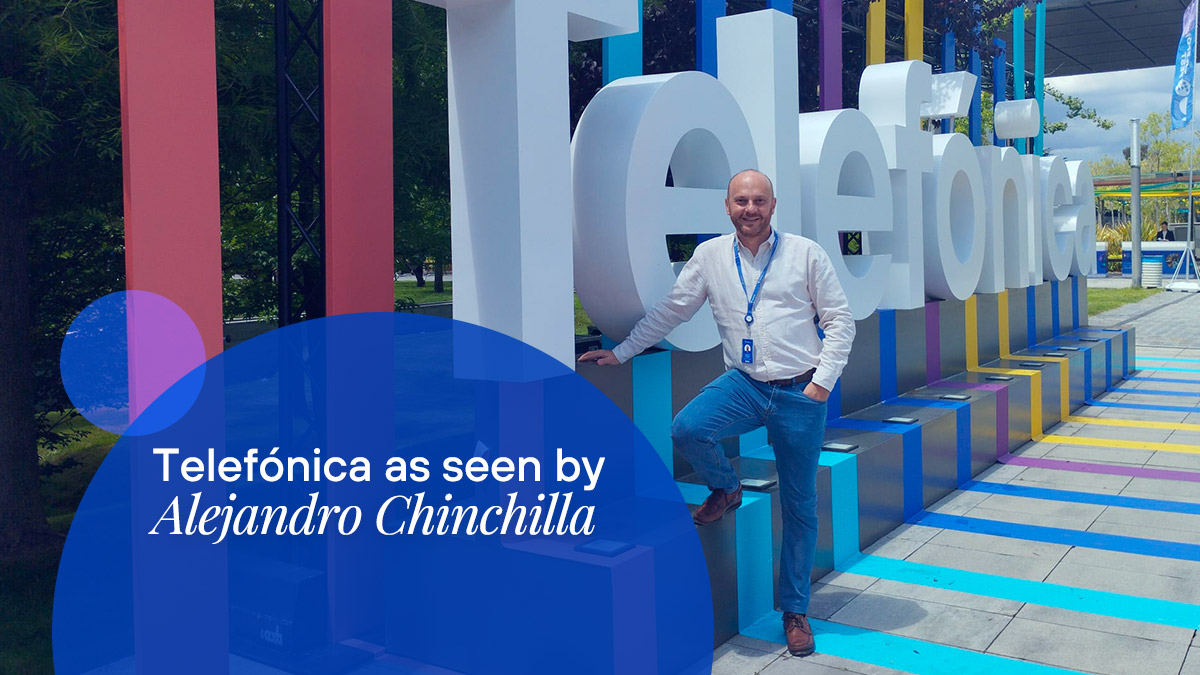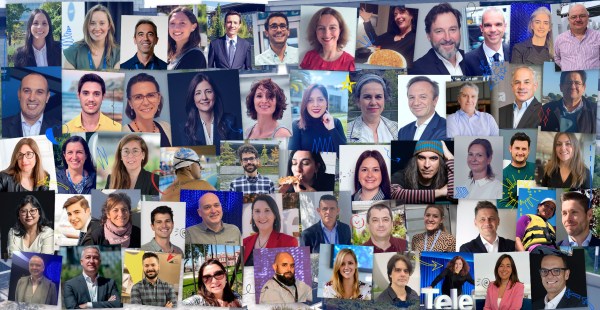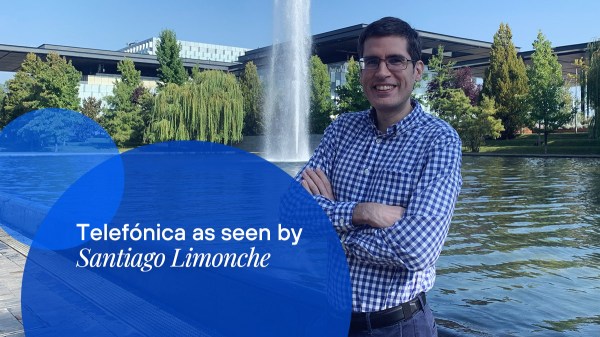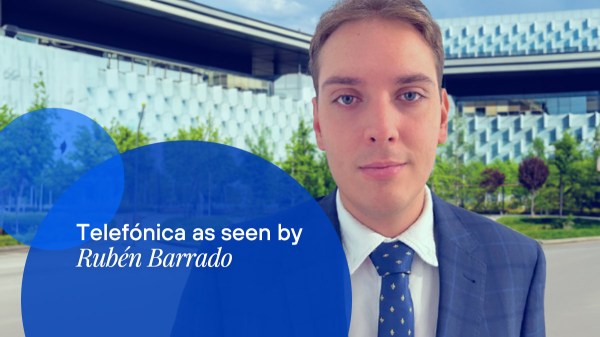How long have you been with Telefónica and what is your assessment of your time here?
Fate led me to work as a freelancer, to be one of those entrepreneurs who took a risk, created and stumbled upon their own company; to work in the service of a public administration; to direct social issues in a foundation; to transition through a medium-sized company and, finally, to be very happy in a multinational that is my second home, and it could not be any other than Telefónica. In a few months it will be 10 years since I arrived here.
I value Telefónica’s permanent “vocation of service to society”, something that makes it unique in the business ecosystem of our country, with a huge capacity to generate “connections” in all imaginable areas: smart cities, tourism, education, health and welfare, defence and security, the environment, the third sector, etc.
But if there is one thing that I deeply value in my experience at Telefónica, it is the “people” in capital letters. Not only my teammates, who are infinitely better than me in every way, but also all the people you meet day after day in the complex “diversity” of areas that make up our company. Because the famous “reskilling” that we promote internally does not only come from the training plans sensu stricto, but also from the knowledge and value that all these colleagues with whom I share “a third of my life” bring you day by day.
Is there any project at Telefónica that you feel particularly satisfied with or proud of?
Without a doubt, having had the opportunity, thanks to my director, Antonio Bengoa, to promote the Telefónica Chairs Network since the end of 2017. With 23 years of life and alliances in 25 Spanish universities, this network has managed to position itself as the largest in our country and to become a strategic element of the university-company relationship for Telefónica.
I am very excited to be part of what many call the “epicentre of knowledge and talent”, which is the University as an “institution”, especially if it is in a country like ours, which was able to found one of the first universities in Europe, the University of Salamanca in 1218; and which in 1636, when the first American university, Harvard, was founded, had already founded ten universities in America. In this sense, we were pioneers and we will continue to be so.
With this Network we have managed to be leaders in many areas such as, for example, with the largest technological hackathon and the largest university debate league by number of participating universities in our country. We launched university students into the field of entrepreneurship, when these topics were still far away for many universities, and we promoted STEM skills in all of them when society demanded it. We also wanted to make our contribution to the EHEA (European Higher Education Area) with the first pilot business mentoring programmes for Bachelor’s and Master’s degree final projects. Today, we are continuing to renew our portfolio of activities with more avant-garde ones in line with the times, which we will be discovering as the months go by. Fascinating and a real challenge!
What do you think Telefónica has contributed to society?
This year, 2024, Telefónica celebrates 100 years of “connecting people’s lives” thanks to telecommunications. That is why I believe that this is its main value for society.
It is also firmly committed to education, as there is no more powerful tool today for ensuring social inclusion and boosting the competitiveness of companies than education. EnlightED, Campus 42, Profuturo, Universitas Telefónica, Telefónica Educación Digital, Open Innovation Campus and the Telefónica Chairs and Universities Network are clear examples of the work we are currently carrying out, all accompanied by the conversion of the company’s headquarters, Distrito Telefónica in Madrid, into a global Innovation and Talent Hub.
Education has a strong correlation with the economic development of any country and, above all, with one of the great challenges for ours: job creation. The “equation” to create it involves adding education, digitalisation and entrepreneurship … and we “Telefónica people” know a lot about all of this.
Where do you see Telefónica in the future?
Things have changed a lot. Those productive capacities that for many years constituted the dividing line between countries have today been displaced by learning capacities based on the generation and transfer of knowledge.
In this sense, the development of our society depends on the ability of all actors (companies, public administration and society) to interact and create learning networks that strengthen the scientific and technological capacity of our country and increase productivity and competitiveness in the labour market through open innovation. That is why I see a Telefónica in permanent innovation and transformation.
But all this would not be possible without a “leadership” aligned with our mission. If we look through the newspaper archives, now that we are celebrating our Centenary, we will see that one of the keys to these 100 years of transformation towards the future has been the leadership of exceptionally valuable leaders.
In this regard, I would like to mention two of them: César Alierta and José María Álvarez-Pallete. The first, because he had Telefónica “sewn into his soul” and ended his last days entirely dedicated to the education of children with fewer opportunities around the world, not only in the countries where Telefónica operates, but also in Africa and Asia. The second, my good friend Ricardo Palomo describes him much better than me in his Laudatio to Doctor Honoris Causa under these four qualities: “for his humanist values, his determined drive for digital transformation and technology, his commitment to innovation and his focus on continuous and lifelong education.”
Could you live without a mobile phone?
Yes I could if I could travel in a DeLorean DMC-12 with Doc, like in the movie “Back to the Future” … but it’s not going to happen.
Help us solve one of humanity’s great enigmas: the potato omelette… With onion or without onion?
I don’t know whether to ask our ambassador Ferran Adrià, for whom I have a special admiration, but my 95-year-old aunt wouldn’t let him “deconstruct” it. That’s why I’ll stick with the one she used to make when she was studying in Madrid: potato omelette without onions, the one she used to make all her life.
Nominate other colleagues to appear in this section
I nominate Laura Rus Llave, José Manuel Payán del Río, María Jesús Yáñez Muñoz and Cristina Cuadrado Bendito.









